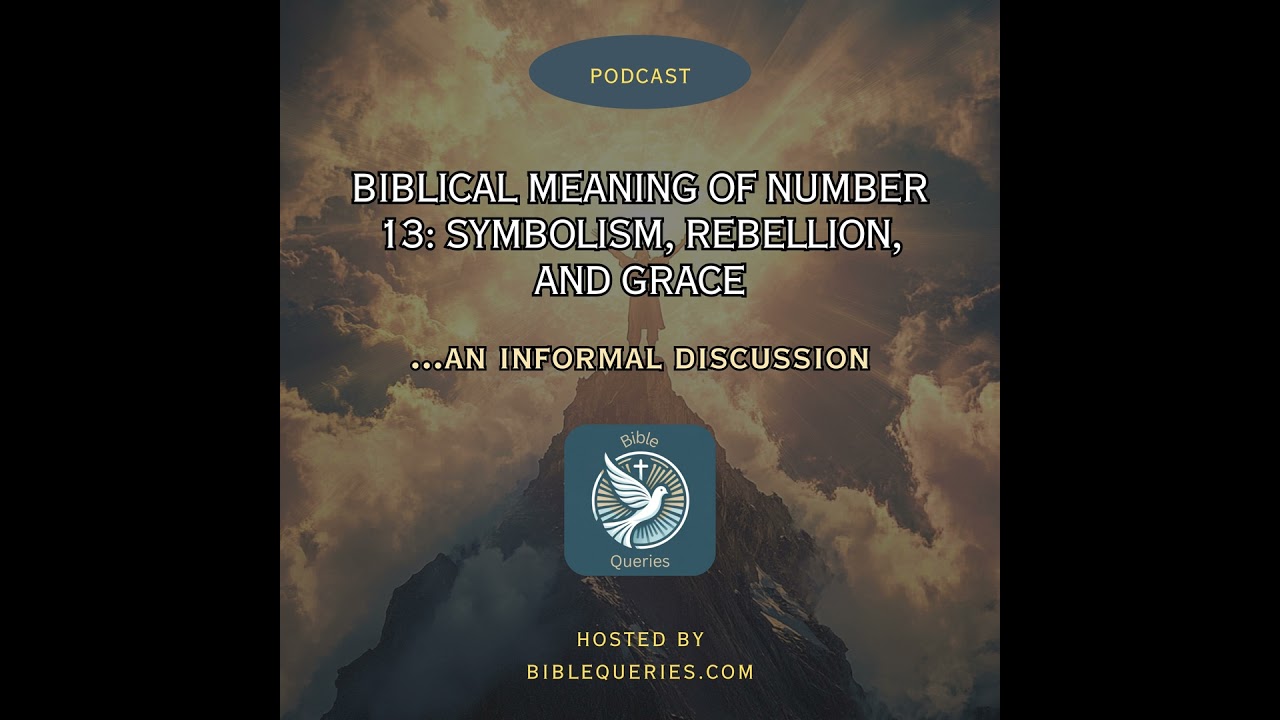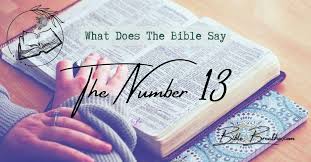You know, the number 13, it’s a funny thing. People get all worked up about it, say it’s unlucky, and some even won’t step foot on the 13th floor of a building. But, let me tell you, this number ain’t as scary as some folks make it out to be, especially if you look at it through the Bible’s lens. It’s got meanings that go all sorts of ways, from rebellion to growth, and even unity. You just gotta know where to look.
First off, let’s talk about rebellion. In the Bible, the number 13 has been tied to folks who went against the grain. Take that fella Nimrod, for example. The Bible don’t come out and say “13 means bad stuff,” but when you dig deeper, you find Nimrod was generation 13 in his family line, coming from Ham’s side. Now, Ham’s one of Noah’s sons, and well, we all know the flood story, don’t we? But Nimrod, he was a mighty hunter, a big shot, and he was all about defying the Lord. That’s the sort of rebellious spirit tied to the number 13, folks—going against God’s ways.
But hold on, don’t go thinking 13 is all bad, now. There’s another side to it too. In the Bible, this number shows up in places where people grow, transform, and change. You see, the number 13 also shows up when there’s a shift happening. Like in the book of Genesis, when God promised Abraham that he would have a son, Isaac, even though he was old as the hills. That promise, it was a turning point, and the number 13 shows up in some of these key moments where folks take a step forward in faith and in life.

Then, there’s the number 13’s connection to the apostles. Now, some folks might not know this, but the number 13 pops up when we talk about Jesus and his 12 apostles. Jesus, he had his group of 12, but after Judas betrayed him, there were 13—counting Jesus, of course. So, while 13 might seem unlucky to some, in the case of Jesus and his disciples, it was about transformation, the beginning of something new. After all, without Judas’ betrayal, the whole story of redemption might have turned out different. So, 13, in a way, is tied to big changes, even the kind that might not look good at first, but turn out to be part of God’s plan.
And hey, let’s not forget about the good things this number represents. You know, in some other traditions, like Kabbalah, 13 is seen as a number of unity. It’s all about bringing things together, forming something whole. The word for “one” in Hebrew, “echad,” adds up to 13 when you add up the numbers of the letters. That’s something to think about, huh? It shows how, in some ways, 13 stands for completeness and unity, even if folks mostly see it as a number of division or bad luck. It’s all about how you look at it.
Now, don’t get me wrong, some folks still don’t like the number 13. They say it’s a sign of lawlessness and chaos. But I reckon that’s just folks being scared of change. The Bible shows us that 13 can be a number of both rebellion and redemption. You see, sometimes you gotta shake things up before you get to the good stuff, and 13, whether we like it or not, is part of that shake-up.
So, in the end, the meaning of 13 is a bit complicated. It’s got both good and bad sides, and it’s up to us to figure out how to make sense of it. But just remember, whether it’s about rebellion or redemption, transformation or betrayal, 13 shows up when things are changing, when God’s plan is unfolding, whether we like it or not.
In the Bible, this number doesn’t just sit still. It moves, it shifts, and it helps us see that no matter how tough things get, there’s always room for growth. And ain’t that something to hold on to, especially when life starts feeling a little too wild or unpredictable?
Tags:[biblical number 13, biblical symbolism, number 13 meaning, rebellion, spiritual growth, Kabbalah unity, number 13 in the Bible, apostles betrayal, Genesis 13, transformation]


